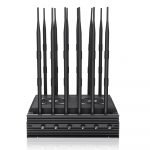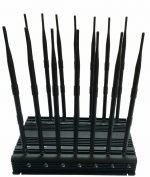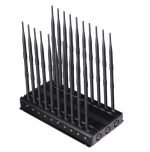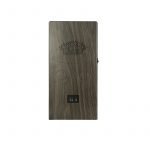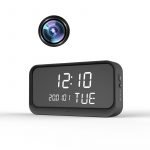GPS signal jammers have been around for many years, but recent efforts by law-enforcers to ban them are not working. While the US Federal Communications Commission has announced a new effort to crack down on GPS jammers, the laws only cover use, not sale. In the UK, navigation researchers have called for back-up in the fight against jammers. They will meet at the National Physical Laboratory in Teddington, UK, to discuss the issue.
Enhanced LORAN is a GPS signal jammer
A GPS signal jammer can target a single frequency or an entire band, but the Enhanced LORAN system is a much better choice for tracking and navigation purposes. Currently, the eLoran system is being implemented in many countries, including France, England, Germany, Norway, and Denmark. Because of its increased performance, eLoran will be more accurate than Loran-C and offer additional services. As of now, eLoran affects the L1 band, but the jamming intervals are dependent on the transmission power.
eLoran signals are millions of times stronger than GPS signals. Because of their greater power, they can penetrate subterranean environments. Therefore, eLoran signals are very difficult to jam even with a sophisticated jamming device. To avoid this, you can purchase a GPS signal jammer that will block eLoran signals. The device should also block any GNSS signal that is aimed at your device.
Enhanced LORAN plugs directly into an automotive 12 V outlet
Enhanced LORAN can be plugged into an automotive 12 V outlet to provide navigation information to your car. However, it has some disadvantages. This is because car cigarette lighters were not designed as accessory sockets. Because of this, any device that needs to plug into an automotive 12V outlet must work around some limitations of this socket. For example, most car cigarette lighters only have a fixed depth and inner diameter, which is not ideal for a device designed to operate on a high voltage. A 12V power plug will typically have spring-loaded contacts.
Most cars have a 12V socket, which can be used to power a variety of portable electronics. The 12V socket can also be used to charge a portable device such as a USB-powered device. A standard car cigarette lighter socket is located on the dash, and is the most common power source. It is also easily accessible, making it an ideal power source for charging portable devices.
Enhanced LORAN blocks GPS from several kilometres away
In addition to blocking GPS signals from a few kilometers away, Enhanced LORAN is capable of penetrating urban canyons and receiving signals inside a vehicle or building without an external antenna. While Loran has long been a popular navigation aid in the maritime industry, its improved performance will make it more attractive to the sector. Its increased diversity will also improve the economics of the system.
However, eLoran’s timing signal is still less accurate than GPS. In testing conducted by the United Kingdom National Physical Laboratory, the signal received by eLoran was accurate to within 1.5 microseconds. Besides, the signal is not accurate over long distances and the eLoran’s phase alignment was not tested over a 24 hour period. Furthermore, it is not capable of maintaining phase alignment over a 24-hour period. Moreover, it is not effective in temperature changes.
Enhanced LORAN interferes with business-critical operations
While the U.S. military and industry are arguing over whether the eLoran system should be upgraded, congressional critics say the decision is not the right one. They point out that the Loran-C system is more than 20 years old and should be spared for future needs. They also point out that the proposed eLORAN upgrade would cost only $100 million, less than the cost of putting a new GPS satellite into orbit.
However, the U.S. Coast Guard decided to stop mandating maintenance of Loran in 2010, and many beacons were shut down. While some blame this decision on political and funding reasons, many people say that Loran is still operational in some form. Perhaps this is a sign that the new Loran system is on its way. Let’s hope so. So, what should we do in the meantime?



